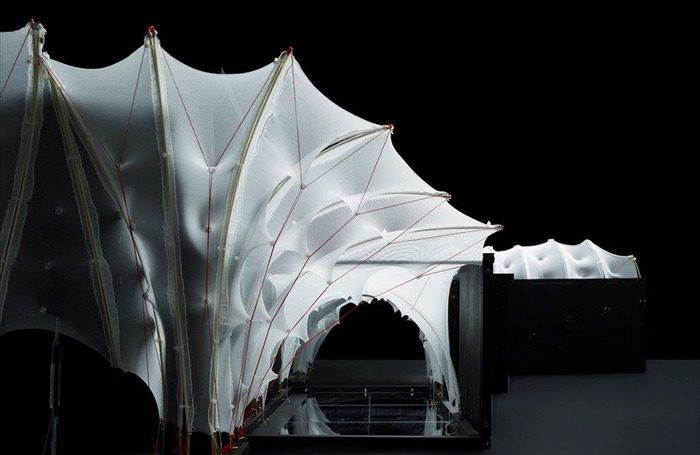The RIBA’s forward-thinking annual event for practitioners of all sectors and scales, the Smart Practice Conference will be held in London in 2019 for the first time in several years, following stints in Bristol, Nottingham and Cambridge. It will be held at the RIBA in 66 Portland Place on 1 October; early-bird tickets are now on sale until 31 July.
Under the theme of New Ways of Working, speakers from practice and academia, from client bodies and contractors will be exploring the opportunities of digital design and fabrication for architectural practice during the first half of the programme; new procurement models and collaborative working in the afternoon.
"The way we practice as architects and professionals is rapidly changing with the advancement of digital tools," affirms Ana Matic, Director of Digital Development at Scott Brownrigg and part of the member-led Steering Group.
"The vast scope of digital tools used nowadays is astonishing," she continues. "Architects’ digital abilities are becoming essential aspects of how we design and manufacture buildings. The conference will explore new ways of working through collaboration and design/manufacture integration – investigating new potential for smart practice."
Lanre Gbolade, RIBA Council Member and Production Innovation Lead at housing client L&Q Group, enthuses: "This year’s Smart Practice Conference promises to be highly insightful and engaging. There are several digital innovation-led, MMC and offsite project case studies from practices and organisations who are leading the way in the industry."
"It will be a thought-provoking day for attendees either looking to kick-start their engagement with these new ways of working or already on the journey."
The conference will provide an opportunity to hear from keynote speaker Mette Ramsgaard Thomsen, head of the Centre for Information Technology and Architecture (CITA) at the Royal Danish Academy of Fine Arts in Copenhagen. Her pioneering work investigates the way digital technologies are challenging architectural thinking and construction and enable a new material practice, or as she calls it, ‘digital crafting’. Among her most recent work counts the Danish Pavilion at the 2018 Venice Biennale.

Practitioners keen to find out more about designing for digital manufacture from a leading UK practice can pick up insights from Bruce Bell, Managing Director of Facit Homes. A product designer by training, he will share insights into Facit’s work process and the way it has been informed by the product designer mindset. His company has brought the manufacturing process to the site: a mobile production facility that fabricates structural components on the spot from the designer’s digital model.
Sheffield-based Bauman Lyons is another practice investigating ways to integrate Modern Methods of Construction (MMC) into their work. They are part of a team developing a prototype for "bespoke, systematised building components" that would be easily compatible with manufacturers’ existing capabilities, and which designers could tap into directly through the internet.
The practice is also innovating in a very different area: procurement models supporting greater alignment and collaboration between members of the project team. Director Irena Bauman will share her experience of working within the framework of Integrated Project Insurance (IPI) on the Derby Silk Mill which is currently on site. One of only a couple of IPI projects so far, contractor, client and legal advisor will join the panel to discuss a model devised to replace liability-driven PI Insurance with a collective insurance model based on transparent co-operation.
Other speakers during the afternoon session will include Tomas Stokke of Haptic Architects, highly successful at using strategic collaboration to punch above their weight and work on large-scale projects; and Jan Kattein on the design process as a tool for community building and socially inclusive regeneration.
"In a world of rapid technological change, it is becoming increasingly difficult for architects to keep up with the pace," suggests Carl Turner, Founding Director of Carl Turner Architects.
"With so much packed into a one-day format, the Smart Practice Conference can go one better and actually put delegates ahead of the curve – especially around the red-hot topic of off-site housing production."
Text by Neal Morris. This is a Professional Feature edited by the RIBA Practice team. Send us your feedback and ideas
RIBA Core Curriculum Topic: Business, clients and services.
As part of the flexible RIBA CPD programme, Professional Features count as microlearning. See further information on the updated RIBA CPD Core Curriculum and on fulfilling your CPD requirements as an RIBA Chartered Member.
Posted on 20 June 2019.









